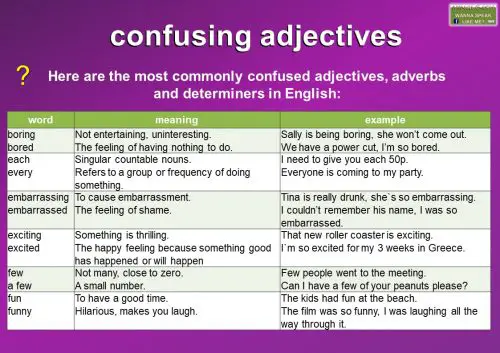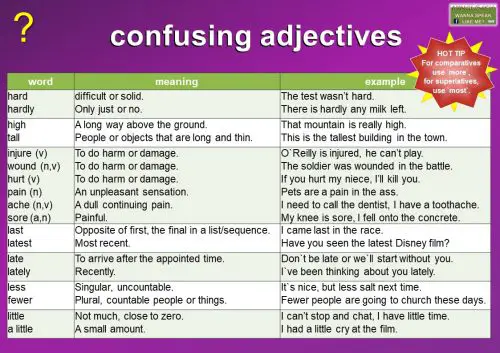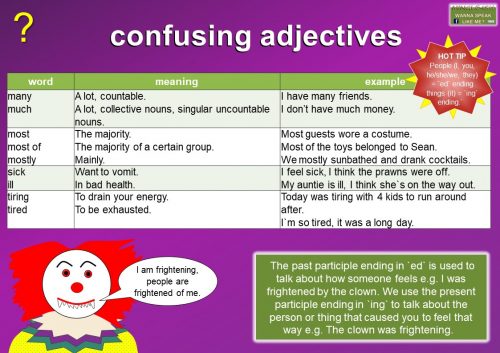Contents
- What are confusing adjectives?
- confusing adjectives list
- boring vs bored
- each vs every
- embarrassing vs embarrassed
- exciting vs excited
- few vs a few
- fun vs funny
- hard vs hardly
- high vs tall
- injure vs wound vs hurt vs pain vs ache vs sore
- last vs latest
- late vs lately
- less vs fewer
- little vs a little
- many vs much
- most vs most of vs mostly
- sick vs ill
- tiring vs tired



